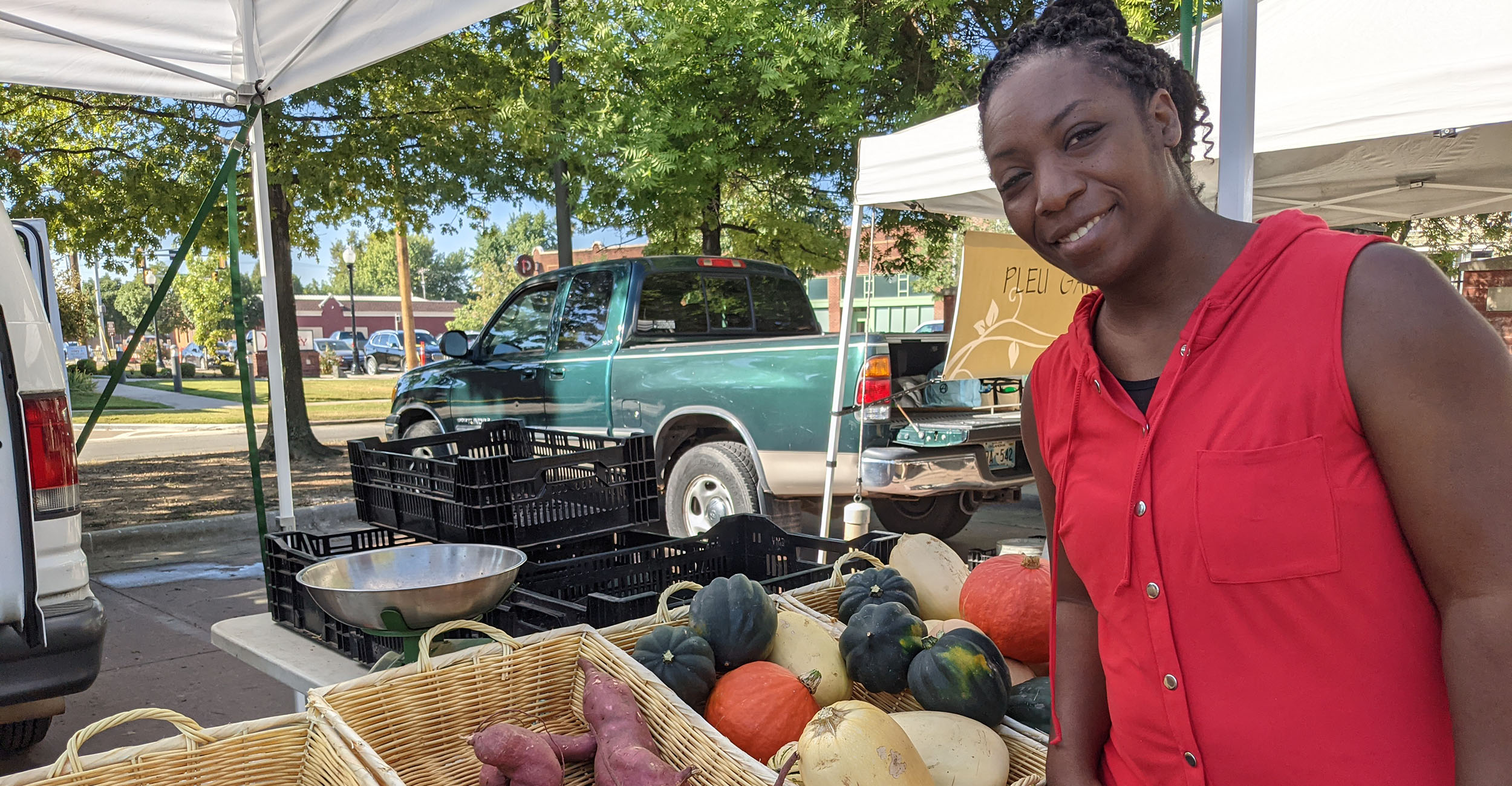
OSU Extension’s CNEP helps families stretch food budget
Monday, September 27, 2021
Media Contact: Trisha Gedon | Communications Specialist | 405-744-3625 | trisha.gedon@okstate.edu
Rising food costs continue to make it challenging for families on limited budgets to put healthy meals on the table, but some relief is on the way.
The U.S. Department of Agriculture recently recalculated the Thrifty Food Plan, which is used to calculate Supplemental Nutrition Assistant Program (SNAP) benefits based on family size.
The recalculation will increase SNAP (formerly food stamps) benefits across the nation. In Oklahoma, recipients will receive about $36 extra per person per month. A family of four will have an additional $140 each month to bolster their purchasing power for food. The increase goes into effect Oct. 1.
Oklahoma State University Extension's Community Nutrition Education Program (CNEP) helps SNAP benefits recipients make healthy food choices and stretch their food dollars to last the whole month, said Candy Gabel, CNEP state coordinator.
CNEP is funded by two federal programs: The Expanded Food and Nutrition Education Program (EFNEP) and the educational component of the SNAP-Ed.
“Our nutrition education assistants (NEAs) work through CNEP and SNAP-Ed with families and individuals to provide them with knowledge and skills needed to prepare healthy meals and help them budget their food dollars so they last all month long,” Gabel said. “We currently have 38 NEAs that cover 34 counties across the state.”
Kimberly Cripps, CNEP area coordinator in the Tulsa County OSU Extension office, said this is the first time the Thrifty Food Plan has been updated since 1975.
“Current SNAP benefits are a max of $4 per person per day, so the extra benefits families will be receiving will be helpful,” Cripps said. “Our NEAs work closely with their clients to teach them how to make healthy meals at home instead of spending money on fast food. We want to create behavior changes to help those on limited budgets be able to enjoy healthier food options.”
Marleta Giles, NEA in Tulsa County, has been working with families for several years and is happy to learn of the increase in benefits.
“I think this will truly make a difference for families. We not only want to help SNAP benefits recipients make their food dollars last all month, but we also encourage them to shop and cook in a healthy way,” Giles said.
Giles helps her clients learn how to read sales ads from the local grocery store, comparison shop, make lists, plan menus and use ingredients already in the kitchen. She said it’s important to plan menus and make shopping lists to make sure all ingredients are on hand and to avoid going to the store multiple times a week.
Giles also helps her clients think outside of the traditional grocery store by taking them to the farmers market.
“Many families don’t necessarily think about shopping at the farmers market. Here in Tulsa there’s a program called Double Up Food Bucks in which they can exchange $20 in SNAP dollars and get $40 worth of tokens to spend at the farmers market,” she said. “The farmers market offers more than just fruits and vegetables; they also can get meat and fresh eggs. It’s a win-win for everyone.”
Lacresha Davis has been working with Giles and said the information she has received has been useful in helping with meal planning, shopping strategies and meal preparation.
“Marleta really helped me improve my food choices at the store and helped me understand what healthy food truly is,” Davis said. “I’ve learned a lot about how foods are labeled. You might think you’re making a healthy choice, but you’re not. There are several words that really just mean sugar.”
Davis also said Giles has helped her make meals that are filling, but also budget friendly. Growing up, she said meals had to be a potato, meat and a vegetable, but thanks to CNEP, Davis has learned how to make healthier meals that are filling and taste great.
“In one of the classes Marleta made a dish with quinoa and vegetables. There wasn’t any meat, and I didn’t think there was any way I could get full on that,” she said. “I was surprised at how good it was. In fact, I made it for my family three times that week.”
Davis said she’s thankful for everything she has learned through CNEP and Giles.
“I’m blown away by the professionalism of this program. Marleta has been so helpful to me and my family,” she said. “My family’s eating habits have improved and I’ve learned so much.”
For more information about the CNEP program, contact Gabel at candy.gabel@okstate.edu or 405-744-9942. OSU Extension offers additional nutrition information online.
